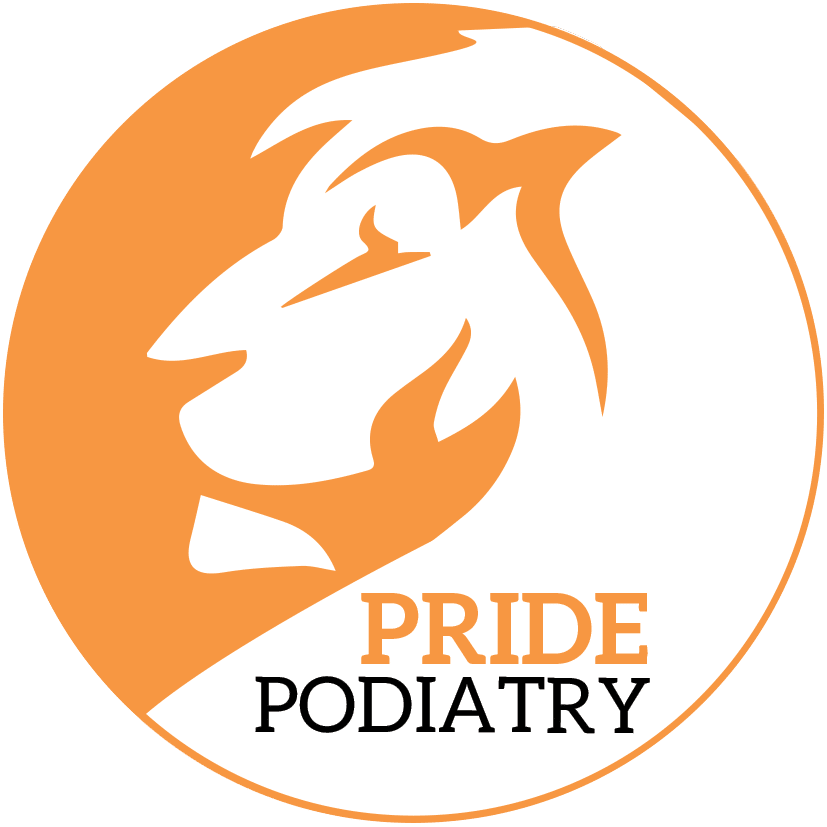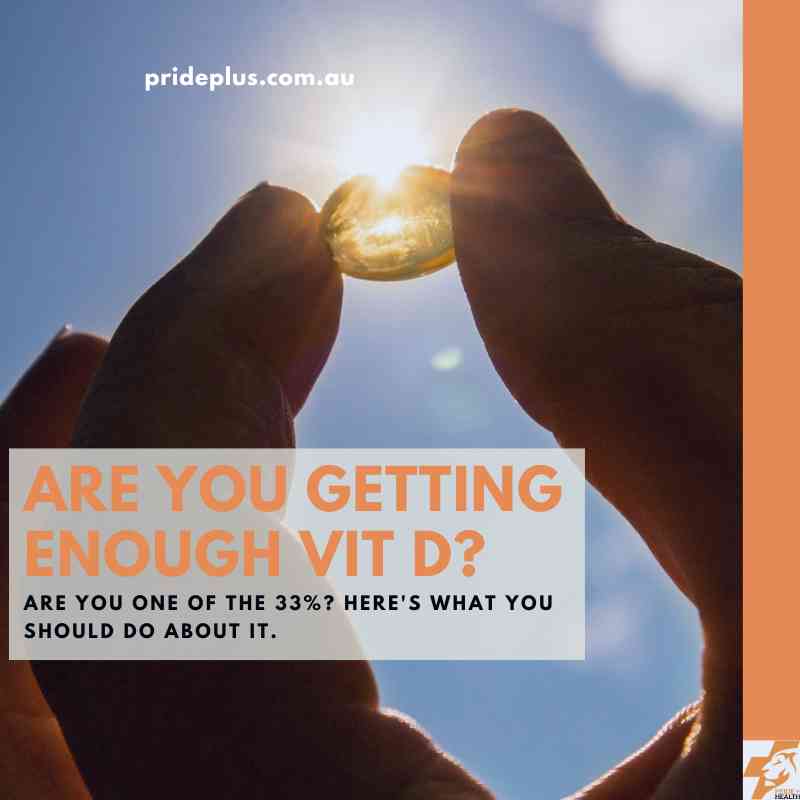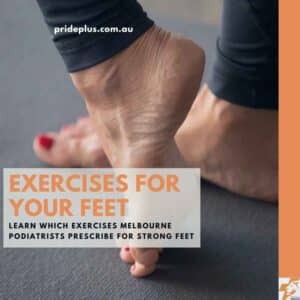If you’ve recently been diagnosed with low bone density, welcome to the world of Vitamin D supplements and calcium.
While there is no cure for osteoporosis – or its precursor, osteopenia – there is much to be done to build healthy bones and you, as the owner of the chalky bones, owe it to yourself to get informed.
So, let’s talk about Vitamin D supplements and calcium as part of a multidisciplinary strategy to safeguard your bone health.
How common is osteoporosis in Australia
The short answer is, much more common than you might expect.
It is difficult to give a definitive answer because osteoporosis has no obvious symptoms and can go undetected. Many of us may be suffering from declining bone health and not yet be aware. It is only when a minimal trauma fracture occurs, that a diagnosis might be sought. (My mother, for instance, fractured her foot on the dance floor when someone with two-left feet stepped on her shoe).
The sad truth is that for most of us, our diets are lacking in calcium and we are not getting enough vitamin D:
- 75% of Australian females don’t meet their calcium intake.
- 50% or Australian males are calcium deficient.
- 33% of Australian adults have a Vitamin D deficiency.
Almost three out of four of all females, and just over half of all males, don’t meet their calcium requirements from their food intake. More than a third of all Australian adults have a vitamin D deficiency.
This brings us to the rather staggering and generally agreed-upon estimation that there are 6.2 million Australians over the age of 50 who have either osteoporosis or osteopenia.
Why you need calcium
Calcium is essential for building and maintaining healthy bones.
Calcium gives strength and structure to bones and is essential for building and maintaining healthy bones. Although most of the body’s calcium is found in the bones, a tiny one per cent is needed for healthy heart, muscle, blood and nerve function. When the body doesn’t have enough calcium, it will take what it needs from the bones (which act like a calcium bank), and it is when this happens that your bone density declines.
Vitamin D is required for healthy bones
While we all seem to have a basic understanding that calcium is important for strong bones, vitamin D’s pivotal role in enabling our bodies to absorb calcium is less well-known.
Inadequate levels of vitamin D impair the absorption of calcium in the intestines. This is why we need to consider vitamin D supplements and calcium as a dynamic duo with much to offer.
Our main source of vitamin D is from the sun. Naturally, our levels change with the seasons. During summer, in Melbourne, you only need a few minutes in the sunshine to get enough vitamin D. Between May and August you need two to three hours outside each week.
Some people are more at risk of not getting enough vitamin D from the sun. Those most at risk are adults who are mainly indoors due to health or work, those who avoid the sun, the elderly or housebound, naturally dark-skinned people, and those with medical conditions which can impact the absorption or processing of vitamin D. Pregnant or breastfeeding women or those people who cover their body for cultural or religious reasons are also at risk of not getting enough vitamin D from the sun.
Other treatments to improve bone density
It’s not just vitamin D supplements and a diet rich in calcium that will improve your bone density.
Resistance exercises are vital to stimulate your body to build your bones up healthy and strong. For many though, resistance training is completely foreign, or downright scary. I’ve also heard clients tell me they don’t to do any extra resistance training because they already walk daily, get out in the garden, or just don’t have the time after work and school duties.
Oh oh, wrong, wrong and unfortunately, if you don’t make the time for improving your bone density with resistance training you eventually have to make time to recover from a preventable fracture.
Brutal but true.
So how can you start? There’s these 5 exercises you can do at home, or, if you’d like to have an expert guide you book in for a session with your exercise physiologist in Pascoe Vale.
Foods rich in calcium
A varied diet rich in calcium is ideal.
The obvious inclusions are dairy: milk, cheese and yogurt. The following are excellent sources of calcium: tofu, canned fish such as sardines (eat the bones for maximum calcium), nuts (almonds, brazil nuts, etc), green leafy vegetables (kale, spinach, broccoli, etc) and cereals and legumes.
When you need to take a calcium supplement
Taking a calcium supplement of 500-600mg daily is recommended for those who are unable to get sufficient calcium from their diet.
Just what is sufficient calcium depends on your gender and age.
For women over the age of 50 and men aged 70 and over, the daily recommended calcium intake is 1300mg. Other adults require 1000mg.
Generally, it is advantageous to take the calcium supplement in the evening as it can work to repress the nocturnal rise in bone resorption. The supplements are best taken with food, so the evening meal is a good option. However, for those people who are taking oral bisphosphonates – such as risedronate (Actonel) or alendronate (Fosamax) – it is wise to bear in mind that the calcium can bind with these medications and prevent their absorption. So it is best to take these several hours apart.
Calcium carbonate (you’ll see this on the shelves under the name Caltrate) is not well absorbed by those with achlorhydria (low stomach acid), Calcium citrate (on the shelves as Citracal) is the best option for people on proton pump inhibitors and with subsequent low stomach acid.
Side effects: Are calcium supplements harmful?
Whilst there has been speculation that calcium supplements can lead to an increased risk of myocardial infarction and kidney stones, the jury is still out. What is clear is that the daily intake of calcium from all sources should not exceed 2000 mg.
What is also clear is that calcium from dietary sources does not lead to an increased cardiovascular risk.
Is taking a calcium and vitamin D supplement an ideal osteoporosis solution for you?
Let’s reiterate what we know.
Calcium is vital for bone health. Vitamin D increases the absorption of calcium into the body. Due to the lack of symptoms, you may already be suffering a loss of bone density unknowingly. And if you are over 50, this is more likely than not, to be the case. Chances are, you are not getting enough calcium or vitamin D in your diet,
So what will you do?
Take a good look at your diet. Get some sunshine? Take a 500-600 mg vitamin D supplement and calcium.
Here at Pride Health, we recommend all three of these measures. We would also like to remind you that your bone health can be enhanced by taking a multidisciplinary approach.
Weight-bearing exercise plays an important role in bone health and improving balance reduces the risks of falls which are increasingly troublesome for those with reduced bone density.
About the Author

Melbourne podiatrist Tim Mulholland has seen first hand just how important it is to improve bone density. He’s helped hundreds of clients who suffer with osteoporosis engage with appropriate exercises to prevent falls, build strong healthy bones, and even get back on the D-floor like his Mum did.
References
Interested in the science behind Vitamin D supplements and calcium for osteoporosis? Here’s what I’ve found useful and informative on the topic.




